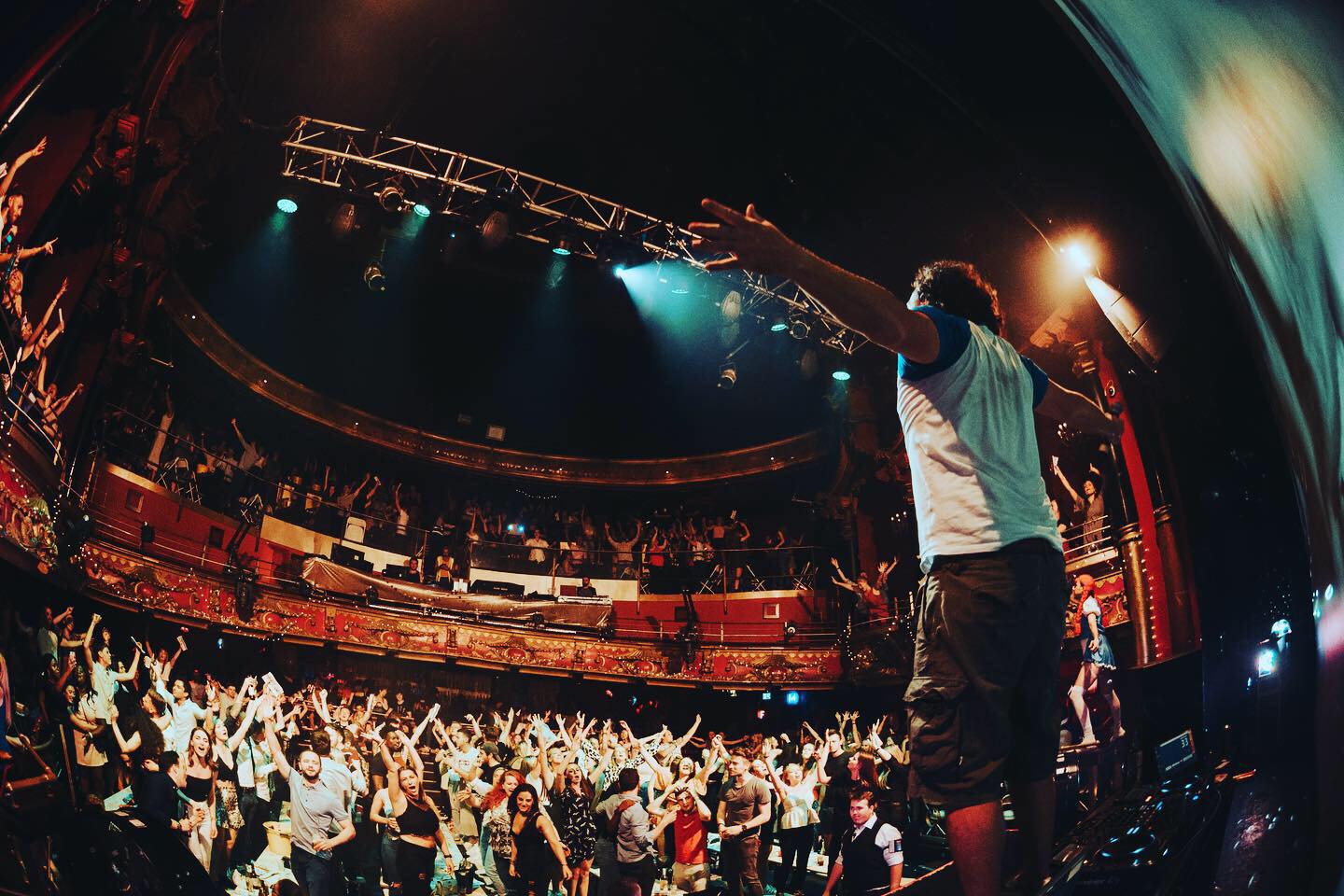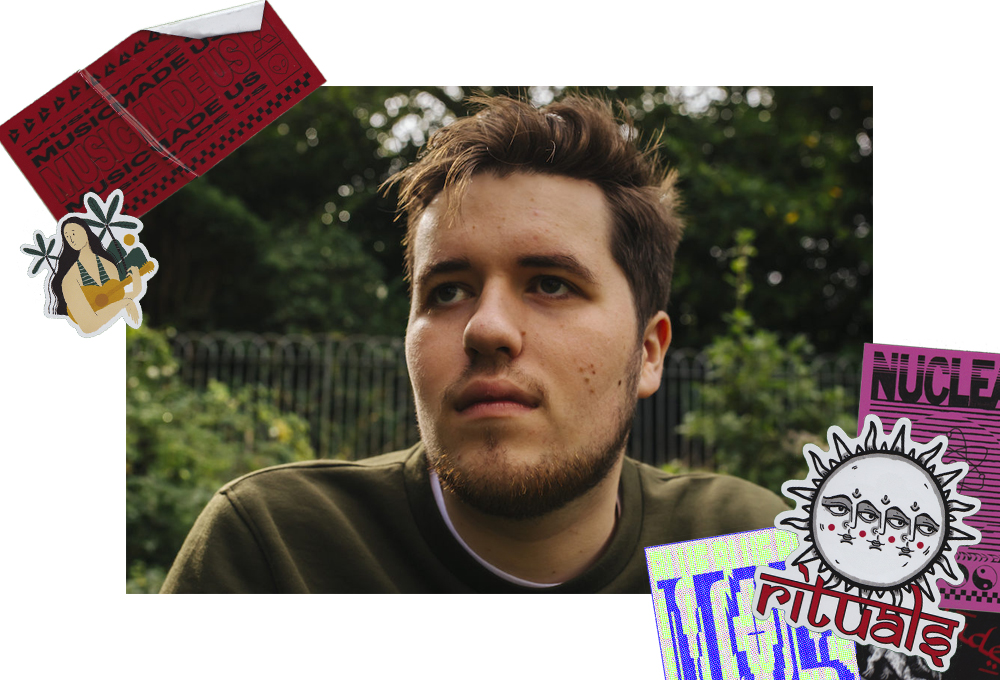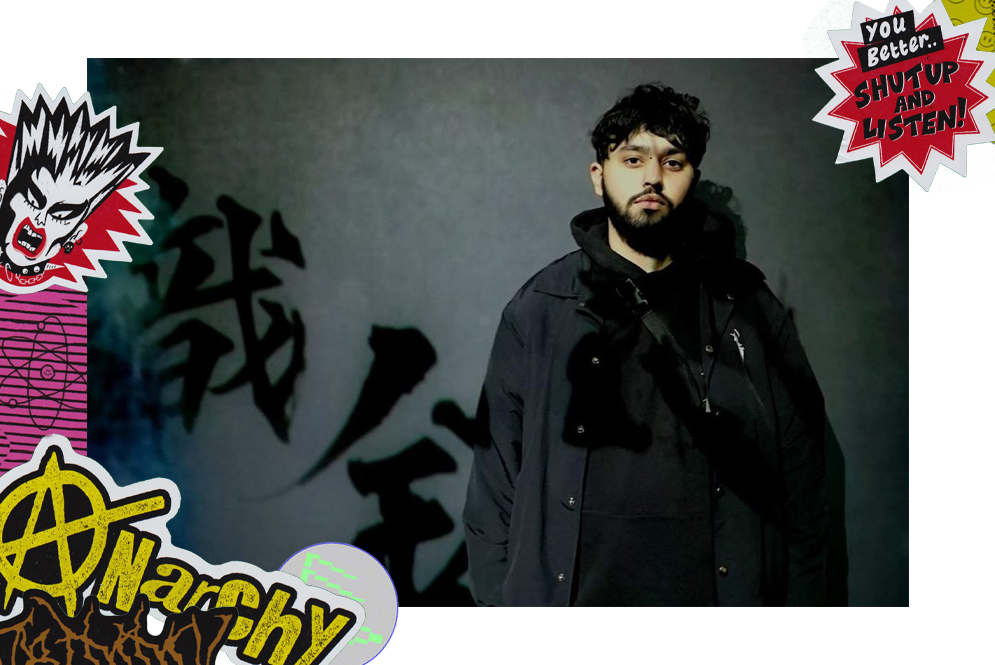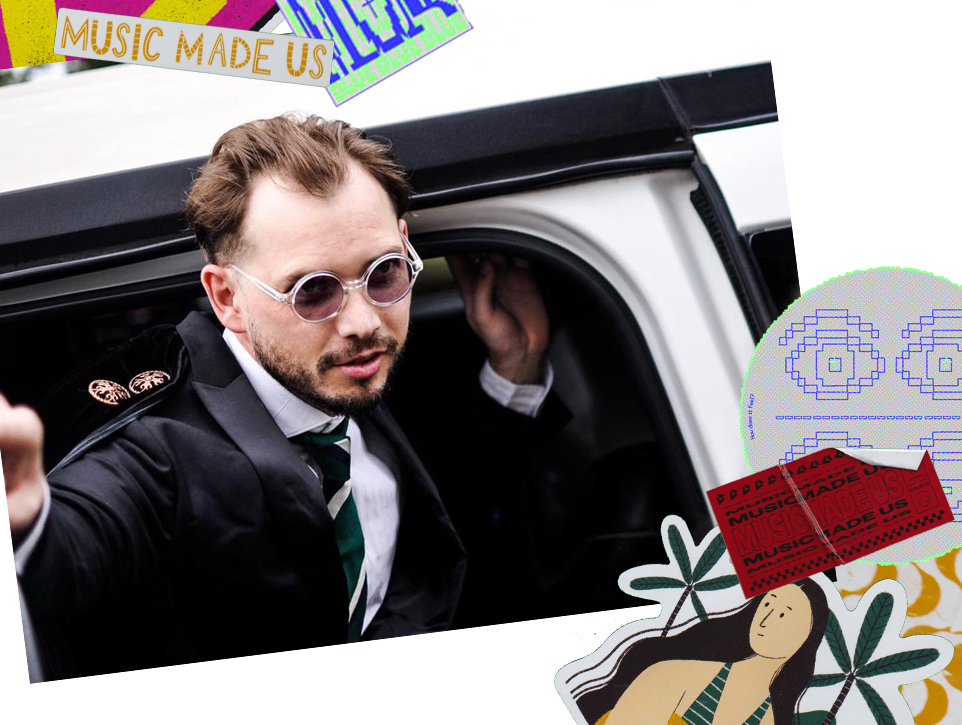As part of our Music Made Us campaign, creatives, music professionals, experts and journalists reflect on how music has been there for us through good times and tumultuous periods that inspire change. Throughout generations, music has sparked, supported and commented on movements, memories and moments in time.
Our contributors explore these events’ relationship with music – from slavery in the 1800s to the UK’s 80s acid house and rave scene and today’s Black Lives Matter movement. Here, experienced events industry professional Matt Gotel reflects on a turbulent life in the events industry: his personal difficulties, how COVID has affected his career, and what he’s doing to overcome this life-changing obstacle.
For me, the three main topics to come out of my experience of the last eight months are my overwhelming love for my family and friends, the need for a stronger connection with the natural world and the importance of the ecstasy that events bring to our society. It is glaringly significant of people’s priorities that – after the initial bum rush for loo roll was satisfied – we all turned to ways of remaining connected. Houseparty became a must-have download, Zoom was suddenly essential for daily life, and the virtual pub quiz was the most exciting thing about the week.
Most people felt a need to open lines of communication with their peers and families to an unprecedented level. My bi-monthly check-in with my large family became a multi-week drop in, even with nothing new to report on apart from the progress of the tomato plants and whether anyone was bothering with sourdough baking. This social want of our species is physicalised by the event industry, whether it be a local farmer’s market; a packed gig on a weekend night or a week-long festival in a muddy field. These events are eagerly written into our diaries months in advance, work-life planned around them and precious holiday days booked to accommodate our attendance.
After the initial buzz and thrill of these virtual connections – and the dust had settled from ‘must-watch’ moments of television– many people began to realise that these moments were hollow and unsatisfying: the hole of real-life event experiences was not one easily filled. A sombre wave of low morale began to wash over. The realisation of how badly we all took for granted the freedom of our social movement truly began to hammer home; the ease of sitting in the round watching a circus performance during the Brighton Festival; packing in shoulder-to-shoulder to bounce and hug and spill our drinks all over the place in a basement club whilst sweat drips on us from the ceiling; to join thousands in a charity obstacle race through the downs, relying on surrounding strangers to carry you through to the finish line.
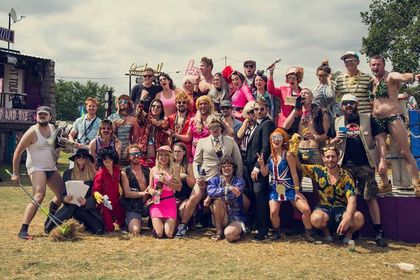 Eventually, every treat was eaten in the house, and I was faced with the prospect of finally answering the question at the back of my mind: “What comes next now…?” Like many others, I watched helplessly as events were cancelled one after another. Like falling dominoes, job offers, income and exciting prospects fell. I was furloughed from my main job, had all my summer work cancelled, watched the house I was buying fall through and suddenly became very scared about being able to provide for my family. The magnitude of the global impact was at times unfathomable to comprehend, and weekly updates of the cancellation of events became the norm, with each one meaning the loss of work for thousands of skilled professionals in the industry. With nightclubs, comedy clubs, theatres and event spaces closing in March, my thoughts were with so many of my friends and colleagues suddenly out of work. Then, with the summer approaching, the joy of the British festival season suddenly looked very vulnerable. Glastonbury’s cancellation was a particular blow followed by so many more.
Eventually, every treat was eaten in the house, and I was faced with the prospect of finally answering the question at the back of my mind: “What comes next now…?” Like many others, I watched helplessly as events were cancelled one after another. Like falling dominoes, job offers, income and exciting prospects fell. I was furloughed from my main job, had all my summer work cancelled, watched the house I was buying fall through and suddenly became very scared about being able to provide for my family. The magnitude of the global impact was at times unfathomable to comprehend, and weekly updates of the cancellation of events became the norm, with each one meaning the loss of work for thousands of skilled professionals in the industry. With nightclubs, comedy clubs, theatres and event spaces closing in March, my thoughts were with so many of my friends and colleagues suddenly out of work. Then, with the summer approaching, the joy of the British festival season suddenly looked very vulnerable. Glastonbury’s cancellation was a particular blow followed by so many more.
“If you don’t believe in the importance of the impact of these transient entities upon life, then sadly you’ve never been lucky enough to experience seeing a sunrise over a sea of coloured tents and flags, feeling the heat off Arcadia’s pyrotechnics or dancing with your daughter against ten Mr Motivators whilst a thousand people sing “The Circle of Life” at you.”
Like so many people, I have been lucky enough to attend and perform at festivals for the last 15 years. If you don’t believe in the importance of the impact of these transient entities upon life, then sadly you’ve never been lucky enough to experience seeing a sunrise over a sea of coloured tents and flags, feeling the heat off Arcadia’s pyrotechnics or dancing with your daughter against ten Mr Motivators whilst a thousand people sing “The Circle of Life” at you. These seemingly fantastical experiences are but the norm for so many at festivals and events across the country all year round.
“This couldn’t simply be the end of the events industry. It just couldn’t. It is too important to so many people.”
A lot of events are, of course, business-orientated for profits. But, they are all born out of a service to be provided to the public: to entertain us and provide us with escapism and ethereal experiences that we do not get during our day-to-day norms – what a commendable and awesome vocation. This couldn’t simply be the end of the events industry. It just couldn’t. It is too important to so many people. Things would simply need to adapt and evolve and be reinvented.
Some of the most hardworking and creative minds are embedded in the events industry, and I was excited to learn about their experiences and ideas during this time. I wanted to see the way hive minds came together to provide a service that was so much more than just their jobs.
Trying to Adapt
Similar to the thousands of people now out of work, I began to, very unsuccessfully, job hunt. Even with years of experience and a teaching qualification up my sleeve, I struggled to find anything. The delivery drivers’ work in my area was snapped up, and even the NHS volunteer service didn’t need me. I couldn’t commit to a full-time day job as I have two children, and juggling two different school drop-offs and pickups means working hours were tricky. Convincing an employer to take you on your specific terms was hard to come by. I looked at a job in a fruit-packing warehouse but couldn’t commit to what they were asking of six nights a week, working midnight till 8 am; I did a day’s training for cold-calling council residents to try to convince them to fill in a questionnaire about home repairs, but they needed me to commit to 20 hours a week and I just couldn’t do that till October.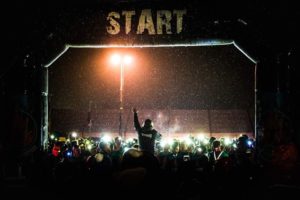
I have never been work-shy and have worked in some capacity since I was 15 years old. It wasn’t a case of swallowing my pride, just more a sense of overwhelming failure that things had come to this. These jobs weren’t beneath me; I had just worked for so many years to develop so much in a specific area and now felt completely unskilled and unwanted. There was also the hope that the event I was booked for next week would still be on; that restrictions would be lifted in some way and allow for something positive to happen. I have surfed the waves of high and low emotions over the past six months; some days have been a struggle, and some have been optimistic.
“Putting an event on during a global pandemic, and only just after people were allowed to start socialising, was an optimistic plan.”
To help break this cycle – and when the first full lockdown was lifted, and pubs and bars could open – I decided to try and create a new event. With my old uni friend from Bristol, Nick, who now works as an event manager, we produced an idea for a night called ‘Not Another Game Show.’ It was a glorified pub quiz with the idea of being more interactive and entertaining to watch. Putting an event on during a global pandemic, and only just after people were allowed to start socialising, was an optimistic plan. I always felt that a pub quiz was done to death during lockdown, but also there is the classic idiom: if it’s not broke, don’t fix it!
We developed the concept into a working event, but we hit immediate speed bumps in the shape of Covid compliance restrictions: no standing up, no singing, no touching, no shouting out, etc. An interactive quiz suddenly seemed even more of a ridiculous concept.
We ploughed on and launched the event in Bristol city centre. And we sold about 75% of the tables, albeit mainly to people we knew! The night would be deemed a success for the launch of an unheard-of event. We broke even financially, and it was great to be back on a stage for the first time in five months. The feedback was good from the attendees. Everyone just loved having an excuse to go out and actually be doing something with their mates; I could have probably just read some world poetry, and they would have said they had a great time!
“This is a new issue facing the organisation of all events from now on: the social responsibility to put an event on that kept people safe even from themselves.”
Upon reflection, we made some decisions to try to sell tickets and get bums on seats that impacted massively on our profit margins, and people certainly became less Covid-conscious as the night went on due to alcohol intake. The latter point played over in my mind for some time. This is a new issue facing the organisation of all events from now on: the social responsibility to put an event on that kept people safe even from themselves.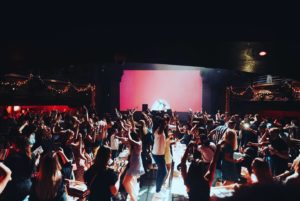
The public must put their trust in entertainers, venue managers and event producers to provide a safe and clean environment to experience their events, whilst somehow controlling the level of how much fun and excitement punters have. If I can return to shows, as currently planned, my ever-changing risk assessment includes agreements such as that there will be no encouragement of people to sing along, shout out and move off their tables; three core ingredients of what makes my shows so enjoyable for the crowds. These pointers are achievable on paper, but when you throw a sizable audience into the mix with a skin full of alcohol and six months of pent up lockdown blues, cracks appear very quickly. We need the public to take on their own level of this responsibility, too. Will common sense prevail? We can but hope.
We’ve been fortunate to have had a hot and fair summer enabling us to socialise outside. When we were released from lockdown, we flooded to open spaces to breathe freely and reconnect with our friends and family. Some events quickly adapted to this change and were able to launch an outdoor experience, such as the Virgin Money Arena in Newcastle. However, these things were still subject to the constraints on Covid – and ultimately, the British climate.
We now find ourselves heading into winter with an uncertain horizon. When the weather changes, and we are robbed of the ability to throw ourselves comfortably down on a grassy space, a table in a beer garden or a bench in an open-air theatre, what will we do then? How will events react to this new challenge?
“Sure, it was great for Taylor Swift to write, master and produce her new album from the comfort of her own home, but what about the rest of us who aren’t millionaires?”
Winter brings an onslaught of SAD and other mental health issues for so many people. Our go-to combative ability to appease these issues is to meet with our peers and family, to be entertained, to lose ourselves in an experience, to laugh and be merry – all provided to us by the event industry. Some events are able to evolve quickly and move online or to a virtual platform; some are not. Not everyone has the funding, the work space, the ability or adaptability of their event to make these changes. Sure, it was great for Taylor Swift to write, master and produce her new album from the comfort of her own home, but what about the rest of us who aren’t millionaires?
Since starting this article, my journey has continued, and I now find myself in a transitional period once more. I have been made fully redundant as my company goes into hibernation to weather this storm. I find myself unable to fall back on my past job as a teacher – not through lack of trying, I have had two interviews already – but there just aren’t many jobs, and the few that are posted are inundated with desperate applicants.
No one in their right mind wants to leave a secure job right now. My issue is a horrible catch-22: I have a two-and-a-half-year gap in my employment history as a teacher, and although I have gotten down to the last two for both jobs that I’ve interviewed for, they have opted to go for someone without the ‘career break.’ I also had a funny experience last week when I went to rent a van to help a friend move and earn myself a day’s wage. The van rental company refused to rent to me as I wouldn’t be covered by their insurance policy as my (not redundant) job was deemed to come under the heading of ‘Artist.’ They do not rent vans to artists?! What the actual?!
“The odds seem stacked against us. But, I find myself still feeling positive despite the continued setbacks facing us.”
Looking Forward
Today marks the start of lockdown V.2. I sit here finishing this article, contemplating the future. The unknown. The US election still not confirmed, a letter from my landlady stating she is selling the building in the summer and we will be homeless. The odds seem stacked against us. But I find myself still feeling positive despite the continued setbacks facing us. My company is selling event tickets for the summer; my friends involved in festivals are having meetings to book artists and sort infrastructure; my friends in music are releasing new material; my colleagues in venue management are still holding live or virtual concerts. The show really will go on.
It is the nature of the great beast that is the event industry. We will evolve, adapt, reinvent, struggle on, work harder, be creative, inspire, motivate and entertain. The party that comes next after all of this will be bigger and more powerful than ever before. After all, we will have had over a year to plan it, and everyone will have had over a year to get ready for it. We will live again. We will scream along out of tune lyrics at the top of our voices and make up the bits we don’t know despite being ‘avid’ fans. We will wrap our arms around strangers and promise to connect with them the next day, despite knowing we never will. We will share life-changing experiences in a blink of an eye. We will listen, laugh, learn, cry, sweat, stumble and dance more than we ever expected. And I for one cannot wait!
Our Music Made Us campaign is told through the students, graduates, journalists, experts and passionate people who have been shaped by music. Discover their stories here.
